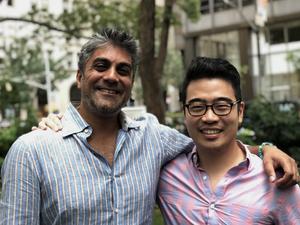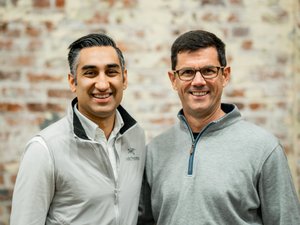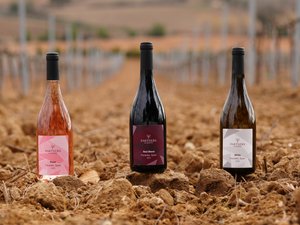
Today, North Carolina is considered a leader in biotech, pharmaceuticals, information technology, and financial services. However, it was not long ago that the Tar Heel state’s economy was dominated by the three t’s: tobacco, timber, and textiles. Bill Johnston, co-founder of Recover Brands, is a product of the latter. Born and raised in Statesville, Johnston grew up around textiles. His father has owned a knitting mill for over 30 years and shortly after graduating from North Carolina State University’s College of Textiles, Johnston teamed up with industry veteran John Riddle to start Recover Brands – a sustainable apparel company.
Growing up in the foothills of Western North Carolina, exploring the Blue Ridge mountains instilled in Johnston a strong appreciation for the outdoors and sustainability. After graduating in 2008, he followed his passion for the wilderness and took a guiding job with an Asheville-based adventure company that focused on backpacking and mountaineering trips in remote wilderness areas across the globe. Johnston flirted with moving to Washington, D.C. to work with organizations focused on environmental policy and sustainability, but those jobs were waning due to the market crash of 2008.
During these stints exploring some of the world’s most beautiful places, Johnston’s sense of environmental and social responsibility to live and consume sustainably grew significantly.
In the fall of 2009, Johnston was in the market for a road bike and fortuitously connected with John Riddle, a yarn manufacturer from Hickory. The relationship quickly grew beyond a one-time buyer and seller. After numerous rides and conversations with Riddle, Johnston learned about recycled apparel – converting used plastic bottles and upcycled cotton into a fabric blend not traditionally found in clothing. Johnston explained, “While some sock companies were experimenting with recycled materials at the time, the technology just wasn’t there yet to make the fabric soft enough for tee shirts.” That was all the impetus he needed to start Recover.
The process begins at the source – plastic bottles. After bottles are collected and sorted, the plastic is cleaned and chopped into flake, melted into pellets and then extruded (a process in which melted plastic is formed into a continuous profile). Upcycled cotton is then blended with the extruded plastic to create a fiber. Finally, that fiber is spun into yarn, knitted into fabric, and sewn into the Recover Tee.
Over the next two years, Johnston developed Recover’s core product by selling to smaller, niche end-markets. “I targeted markets I knew well like the outdoor industry, music, and breweries.” Rather than pursuing larger commercial customers first, Johnston knew outdoor specialty shops, generally known for having more environmentally conscious customers, would be great field testers. This grassroots effort lead to direct feedback which proved to be invaluable in helping Johnston develop a softer and lighter product.
In fabric construction, yarn count is king; the lower the number, the heavier, or more course, the yarn. Conversely, higher numbers yield light and fine yarn. “At that point, you weren’t seeing many recycled yarns higher than 20 singles. We continuously worked with our suppliers to get up to a 30 singles fabric.” Johnston also found that changing the knitting process was critical in achieving sustainability in the manufacturing process. “After knitting, a standard shirt would go to a die house. For us, all the yarn is pre-colored because of all of the recycled cotton scraps. So, we were able to eliminate the dying process all-together, which is actually the eco-friendliest part of our whole product. By eliminating dyes, you’re saving a tremendous amount of water and energy.”
This process also offers marketing benefits. The colors created from the blended recycled scraps create a distinct heathered look. The ultimate result is a unique product that supports a mission.
Whether the company is employing through work co-ops that aim to create sustainable jobs in developing countries, manufacturing in facilities powered by biomass, or encouraging consumers to be better stewards of the environment, Recover’s ultimate purpose is to help solve a problem. “Most mission-driven organizations exist because there’s a problem and we’re the byproduct of a global design flaw in single-use plastics. For us to curb that problem, people must stop consuming so many.”
Eight years ago, Bill Johnston was looking for a way to travel sustainably and bought a bike. That bike lead to a partnership and an idea. Today, that idea converts eight plastic bottles into one 100% recycled shirt and a mission that hopefully many will adopt – to live and consume sustainably.








